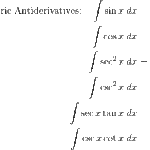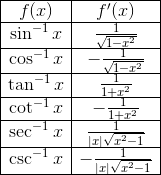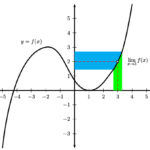Hey, Magooshers. Mr. B here. I hope the 2016-2017 school year is going well for everyone. For those of you taking AP courses, my heart goes out to you. I don’t have to be a mind reader to know that you’re putting up with late nights, lots of reading, and just an all around increased level of stress.
As I’ve said in other articles, AP courses give high school students a great introduction to the academic rigors found in college. That was certainly the case for me. But then I remembered the different skills I learned in the I.B. Programme. It took me a while, but I think I discovered the most important thing many AP courses tend to neglect: the development of useful critical thinking skills and research skills. As you know, AP courses move at the speed of light. Rarely is there a project that lasts longer than a few weeks, and most ‘projects’ are just cookie-cutter research papers. The final product isn’t too long, as long papers would cause your poor teachers to go mad from grading.

That’s where AP Capstone comes in. Over the next few paragraphs I’ll unpack all the details about this exciting new program from the College Board. I’ll discuss how you can benefit by taking it, even if you’ve never considered yourself ‘AP material.’ If you get to the end of this article and want to learn more, check out the official College Board website for AP Capstone.
Nuts and Bolts
AP Capstone is unique in that it is a two-year program. In junior year (or possibly sophomore year), students take AP Seminar. In this course, students develop many critical-thinking skills necessary for college success. Students work alone and in groups to brainstorm, develop, and implement research projects based in real-world issues. Though there is plenty of guidance, students experience a level of academic freedom not usually found in high school courses. And unlike many AP courses, the final 1-5 score is determined by a final exam and students’ work throughout the year.
Students who successfully complete AP Capstone take AP Research the following year. In this course, students spend a year conducting a research-based investigation into a subject of their choice. The goal of this research is to produce a 5,000-word research essay and a presentation that defends the argument presented in the essay. The latter is similar to an oral defense that a doctoral student must pass before receiving his or her Ph.D.
Students who successfully complete these two courses receive an AP Seminar and Research Certificate. If students have also taken four AP courses throughout high school (and scored at least a 3 or higher on each of them), they receive an AP Capstone Diploma. Every day more and more colleges recognize AP Capstone as a valuable addition to the AP ‘family.’ For students planning to apply to colleges that do not yet award credit for AP Capstone, it’s highly likely that the admissions counselors will still view the program in a positive light. If you’re unsure about how your potential colleges feel about AP Capstone, give their admissions offices a call and ask.
The Benefits of AP Capstone
For the right kind of student, AP Capstone is a breath of fresh air in an otherwise routine day. Even the most challenging AP courses become predictable: lecture, reading, quiz, review, exam etc. The lack of academic choice has the tendency to dull bright, inquisitive minds.

Take it from me. I loved taking AP courses in high school. The classes were smaller, and I knew that I was working towards more than just a grade. But because AP courses exist only to prepare students for test day, there was very little thinking ‘outside the box.’ Yes, we learned some critical thinking skills, but there was no sense of urgency or real world impact to what we were doing. It’s like the experiments you perform in high school chemistry. You and the teacher already know how it’s going to end, so what’s the point?
For this reason, I think AP Capstone is an excellent supplement for high-achieving students. AP courses teach the content. AP Capstone has the potential to teach students what to do with all that knowledge in real life situations. At the same time students feel more invested in not only their learning, but also in the greater world around them.
The Challenges of AP Capstone
Choice is a double-edged sword. For some students, academic freedom is liberating. For others, even students already in AP courses, it’s terrifying. Yet here’s where I think AP Capstone made an excellent choice by spreading the program out over two years. The first year presents a lot more scaffolding when it comes to projects both big and small. Students who struggle with autonomy have their teachers to guide them. For students who successfully build up their skills, AP Research provides the chance to hone their skills even further. The difference between these two courses is like riding your bike with and without training wheels.

For students who struggle in AP Seminar, perhaps AP Research isn’t the best option for developing their research and critical thinking skills. There’s no shame in this. Even after earning the I.B. Diploma and passing four AP courses, I still had a lot learn about thinking critically, research, and academic freedom. It wasn’t until my sophomore year in college that I felt ‘competent’ when it came to choosing my own research topics and following through with them to the end. Everyone just learns at a difference pace.
Final Thoughts
If your school offers AP Capstone, I strongly suggest that you consider signing up. Even if you take no other AP courses in high school, AP Capstone will give you the tools to succeed in any task that requires grit, a critical eye, and creative thinking.
Till next time, Magooshers.





Leave a Reply